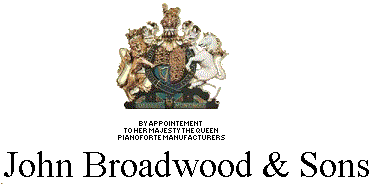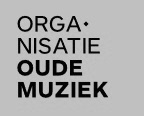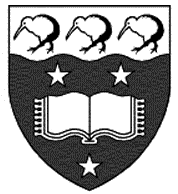Repertoire square piano competition 2018
for the Stanley Hoogland Square Piano Award 2018
Version 30-06-2018
Square Piano Day (12 July 2018)
The candidate performs several short pieces on three square pianos. The candidate can himself decide, which piece he performs on each of the square pianos. The candidate has to perform on each square piano at least once. The recital performance should last approximately 25 minutes.
1. Early period (18th century)
Instrument
a square piano built by Johannes Zumpe (1726-1790) & Gabriel Buntebart (c. 1740-1794) in London in 1769
GG-f3 (omitting GG sharp), single action with overdampers, with three hand levers controlling the damper lift (split between b and c’) and buff stop
Required is a piece by Johann Christian Bach or Wolfgang Amadeus Mozart or one of his contemporaries. The piece should be composed before ca. 1788.
Please note that it should fit on GG-f3 (omitting GG sharp).
2. Transition period (last decade 18th century up and including 1st quarter 19th century)
instrument
a square piano built by Libertus van Even in Paris around 1810
FF-f4, French (comparable to Erard), two pedals: forte and moderato
Required are one or two movements of a sonata by Ludwig van Beethoven.
Please note that it should fit on FF-f4.
3. Late period (after around 1820 up till 1865)
instrument
a square piano built by Collard & Collard in London around 1845 (no. 63676)
CC-a4, English double action, pedal with forte
Required is a piece by an early romantic composer, such as Frédéric Chopin, Franz Liszt, Ignaz Moscheles, Felix Mendelssohn or a contemporary.
Please note that it should fit on CC-a4.
Free choice for the recital program
The candidate shall make his or her own choices for the pieces which he or she proposes to perform. The pieces shall not be the same as the candidate will perform for the fortepiano competition. The length of time the candidate performs on each instrument should be in between approximately 5 to 10 minutes. The total length of the program the candidate performs should be approximately 25 minutes.
The jury takes in consideration the choices of the compositions, as well as the match of these with the instruments. In case the jury does not agree with the candidate’s choice(s), it will indicate this to the candidate well in advance of the competition; in such case the candidate shall make a new proposal for his performance program.
It is appreciate, if the candidate makes good use of the square piano’s technical features, such as the hand levers, knee levers and pedal.
Important notice on the instruments
The candidate performs on historic fortepianos. In case of a technical problem, the jury may provide another fortepiano than the ones described.
Scores
The scores can be found on the website IMSLP.org
Please always chose the earliest version of the scores (i.c. the scores as written down by the composer himself, or as near as possible to this).
Candidates have to provide the organization well in advance of the competition by email with a digital copy of the scores of the pieces, which he or she is going to perform at each of the rounds.
Choices
Please e-mail to us the choices you make for the pieces you will be performing not later then 8th July. The scores should be e-mailed to us in pdf format.
Free choice
Please note that the candidates should always perform different pieces, including for the Square Piano Award. Hence, a candidate will not perform the same piece in another round, neither during the competition of the Square Piano Award.
Performance by heart
The jury shall take into consideration the quality of the execution: technique and aesthetic. In general, the jury prefers a performance right from the heart, rather than a technically perfect performance. In case the candidate performs one of the pieces by heart the jury will take this in positive consideration; however, the latter is not a requirement and the candidate may have the scores open in front of him or her in all cases.
The candidate should strive for perfect harmony between the musician and his instrument, thus the historic piano, as a tool to make music, becomes an integral part of the performer.
Performing on historic fortepianos and square pianos
The candidate should be well aware that the performances are on historic square pianos. These instruments differ from modern pianos as well as from historical copies of period fortepianos.
Please note: a gentle touch and restrained loudness is appreciated.
Historic square pianos should be performed on with loving, tender care for the instrument. It is emphasized that the jury shall take this into consideration and, hence, does not only judge the candidate on e.g. virtuosity.
Rehearsing
Candidates are recommended to try-out the historic square pianos used in the competition in advance. Also there are some limited possibilities to rehearse on these and comparable square pianos during the days of the concourse. Please arrange this with the organization in advance.
Candidates can practice on the historic square pianos used during the competition from 6th July onwards. All are allotted the same maximum amount of time to practice on historic square pianos. Please contact us well in advance to reserve practicing time.
The museum will usually allow candidates to try-out the historic pianos during the public opening times of the museum. Please contact the director of the museum, Mr. Roland Spek, in advance to make an appointment. Roland Spek can be reached at: rolandspek@geelvinck.nl
Please note that you can take advantage of master classes during the year. Please check the website.
Replacement of the indicated historic instruments used for the competition
The organization is at any time allowed to replace any of the historic square pianos and square pianos mentioned above for another fortepiano of approximately the same period and action. No claim can be made against the decision of the festival organization to replace an instrument by another historic instrument of approximately the same period and action.
Dress code
Candidates are requested to perform in decent dress, which is traditional for chamber concert performances.













